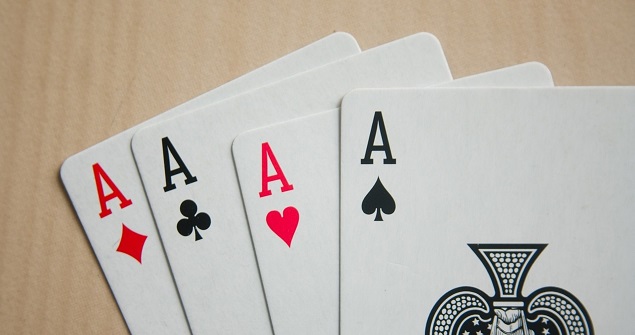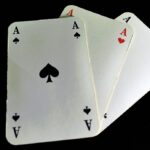
Skat is more than just a card game – it is a deep and beloved part of German culture. Officially recognized as Germany’s national card game, Skat has been captivating players for over 200 years with its perfect blend of strategy, memory, and psychology.
Still widely played in pubs, tournaments, and family homes, Skat offers one of the richest and most rewarding gameplay experiences for card game enthusiasts. If you are looking for a mentally stimulating, endlessly fascinating game, mastering Skat is a worthy goal.
History and Origins of Skat
Skat was developed around 1810 in the town of Altenburg, Thuringia, by a group of card game enthusiasts who combined elements of earlier games like Schafkopf and Tarock. The name “Skat” comes from the Latin scata meaning “discarded cards,” referring to the two extra cards set aside during play.
Skat quickly spread across Germany and became deeply embedded in its culture. In 1899, the German Skat Association (Deutscher Skatverband) was founded to standardize rules and organize competitions, ensuring Skat’s legacy continued strong into the modern era.
Equipment
Deck
- A shortened deck of 32 cards is used, consisting of the ranks: 7, 8, 9, 10, Jack, Queen, King, Ace.
- Suits: Clubs (♣), Spades (♠), Hearts (♥), Diamonds (♦).
Card Ranks and Suits
- Ranks within a suit: Ace (highest) > 10 > King > Queen > Jack > 9 > 8 > 7.
- Jacks always act as trumps, ranked by suit:
- Jack of Clubs (highest trump)
- Jack of Spades
- Jack of Hearts
- Jack of Diamonds
In suit games, the selected suit becomes trump alongside the Jacks.
Game Objective
The player who wins the bidding becomes the declarer and plays alone against the other two players (defenders).
The declarer must achieve a certain number of points based on their contract to win the hand.
Seating and Deal
- Three players participate actively (a fourth can deal but not play).
- Cards are dealt clockwise: three cards to each player, two cards placed face down (the Skat), then four cards to each player, then three more.
- Players pick up their cards only after dealing finishes.
Bidding and Declarations
Bidding is a crucial phase where players compete to become the declarer.
The Bidding Process
- The first player (forehand) bids with the second player (middlehand).
- If the second player passes, the forehand bids with the third player (rearhand).
- Bids are based on the potential value of the game the player thinks they can win.
Game Contracts
After winning the bid, the declarer must declare their game type:
- Suit Game: One suit (Clubs, Spades, Hearts, or Diamonds) is trump.
- Grand Game: Only Jacks are trumps.
- Null Game: No trumps; goal is to lose every trick.
- Hand Game: Declarer plays without looking at the Skat.
Gameplay and Rules
Trick-Taking
- Forehand (left of dealer) leads to the first trick.
- Players must follow suit if possible.
- If unable to follow suit, they may play any card.
- Highest card of the led suit wins, unless a trump is played.
Use of Skat
- The declarer usually adds the Skat cards to their hand and discards two cards.
- In a Hand Game, the Skat is left untouched and counts toward the declarer’s final score.
Special Rules
- In Null games, there are no trumps, and the ranking changes: 7 (lowest) to Ace (highest).
- Overbidding leads to automatic loss.
Scoring System
Each card has a point value:
| Card | Points |
|---|---|
| Ace | 11 |
| 10 | 10 |
| King | 4 |
| Queen | 3 |
| Jack | 2 |
| 9, 8, 7 | 0 |
- Total points per deck: 120
- The declarer must score at least 61 points to win.
Multipliers
Game value = Base value × Multipliers
Multipliers include:
- Matadors: Number of top trumps held or missing.
- Hand: Played without looking at Skat.
- Schneider: Opponents scored 30 points or fewer.
- Schwarz: Opponents took no tricks.
- Open: Declarer plays with cards exposed.
Example Calculation
If you play a Grand (base value 24), with 2 Matadors and achieve Schneider:
24 × (2+1+1) = 96 points.
Variations
Skat has many local variations:
- Ramsch: If all players pass bidding, they play to lose points.
- Bock Rounds: In some casual settings, a lost Grand or Null doubles the next round’s points.
- Tour Skat: Official tournament Skat follows strict rules set by the German Skat Association.
Strategy Guide
Beginner Tips
- Bid cautiously until you understand your hand’s strength.
- Learn to quickly identify your Matadors and potential Schneider.
Intermediate Tactics
- Watch what your opponents discard or fail to follow; it reveals key information.
- In Grand games, strong Jack control is essential.
Expert-Level Strategies
- Counting cards: Track key trumps and Aces.
- Bluffing: Play cards in a way that misleads opponents about your strength.
- Hand games: Choosing a Hand instead of using the Skat can dramatically increase your multipliers – if you can manage it.
Where to Play Skat Today
- Online Platforms:
- Skat-Online.com
- PlayOK Skat
- Skat Palast App
- Local Clubs:
Most German cities and towns have Skat clubs hosting regular tournaments. - Tournaments:
German Skat Championships, European and World Skat Championships.
Related German Card Games
If you enjoy Skat, you might also love:
- Doppelkopf: A partnership-based evolution of Schafkopf.
- Schwimmen (31): A fast-paced game of risk and reward.
- Schafkopf: Bavarian trick-taking tradition.
- Binokel: Swabian meld-and-trick game related to Pinochle.
FAQs
Is Skat difficult to learn?
It has a steeper learning curve, but with practice, it becomes extremely rewarding.
How many points do you need to win at Skat?
The declarer must score at least 61 points to win a regular game.
Can Skat be played online?
Yes! Skat is available on multiple online platforms and apps.
What is the most important skill in Skat?
Bidding correctly and managing trump cards strategically are critical.
Mastering Skat is a rewarding journey filled with rich strategy, quick thinking, and deep traditions. Whether playing casually with friends or in a competitive tournament, Skat hones your memory, sharpens your decision-making, and connects you with one of Germany’s proudest cultural pastimes.
Pick up a deck, learn the bids, trust your instincts – and join the timeless world of Skat!
To explore even more traditional games, check out our full guide on popular German card games.







